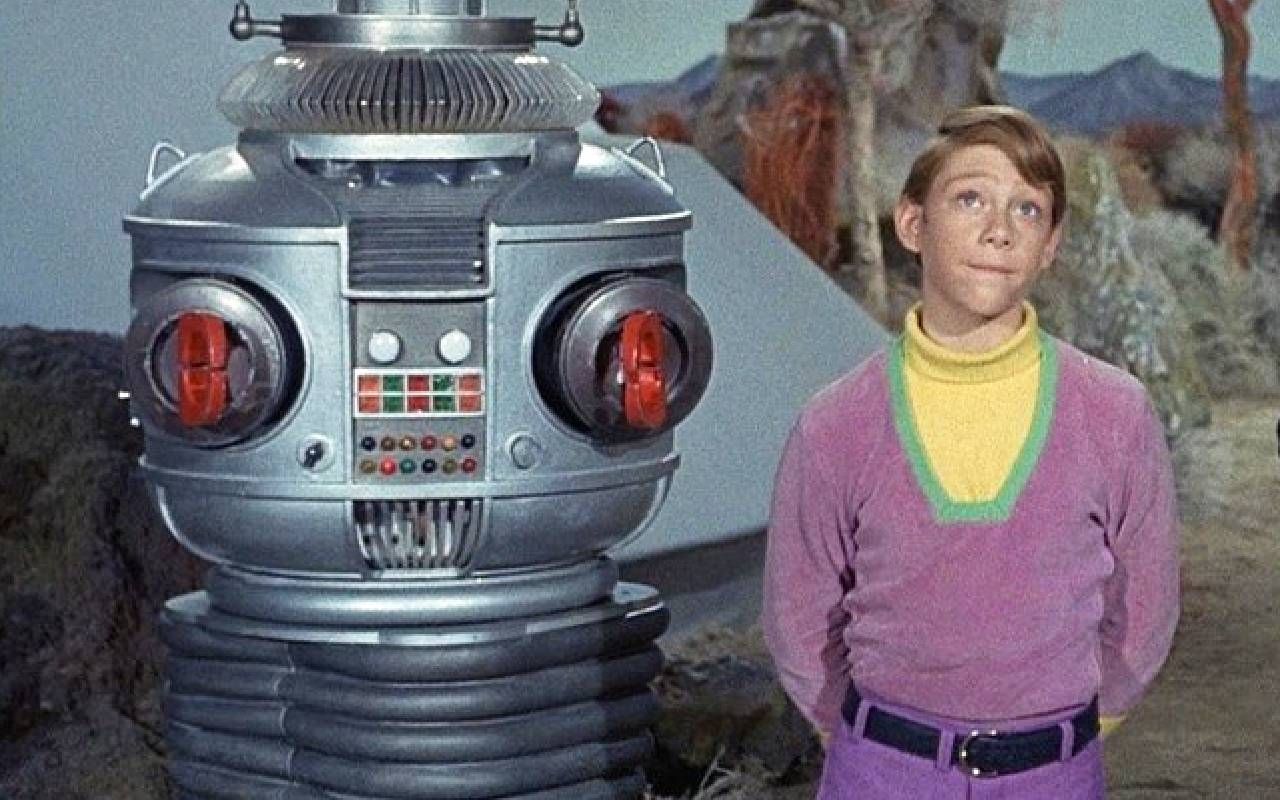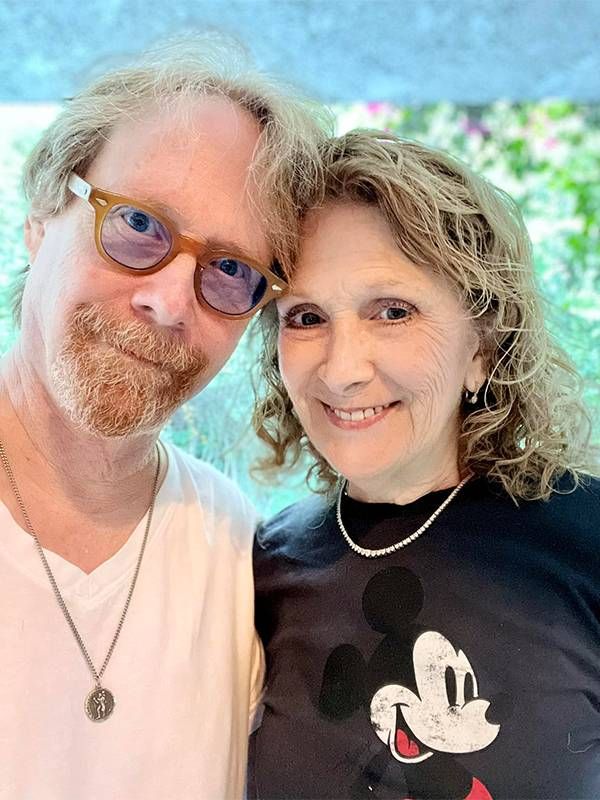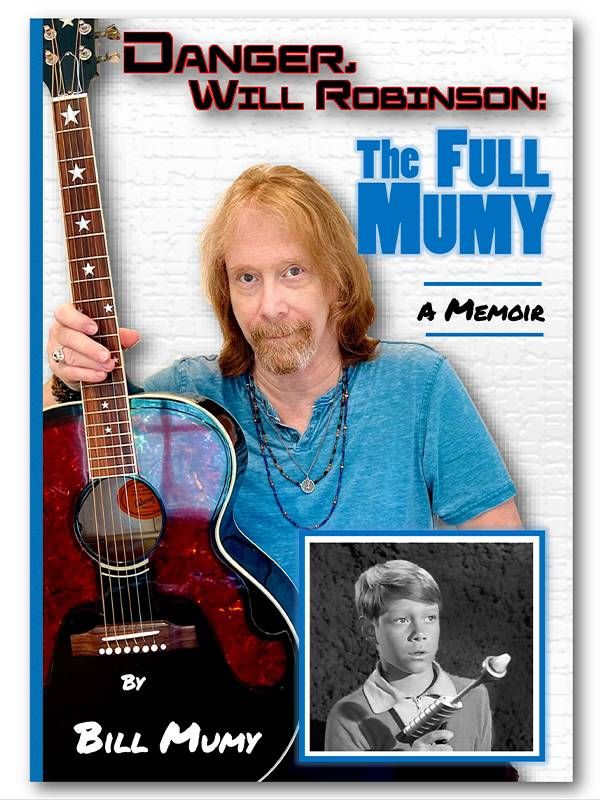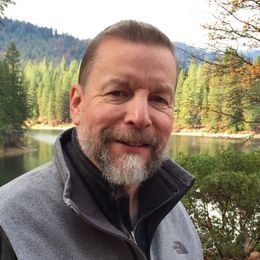'Will Robinson' Is in No Danger
At 69, Bill Mumy, the once ubiquitous child actor, is now living his ‘adult passion’
"If I had thought Lost in Space would still be running 50 years later, I would've renegotiated my residuals." – Bill Mumy
In September 1965, Sam the Sham and the Pharoahs were scandalizing the airwaves with "Woolly Bully." (Herman's Hermits had more songs charting than the Beatles, which is just, well, wrong.) Willie Mays hit his 500th home run, the first major leaguer to do so. The word "hippie" first appeared in print, in the San Francisco Examiner. The Soviet Union launched its first nuclear-powered satellite. In Gemini 5, astronauts Gordon Cooper and Pete Conrad had just negotiated the first space "rendezvous" with an unmanned test module.
And the "Space Family Robinson" embarked on their ill-fated trip to Alpha Centauri aboard the Jupiter II spacecraft…Wednesday nights on CBS.

The original "Lost in Space" was set only 32 years in the future, a clear reflection of the infectious optimism for the U.S. space program at the time. The crew included a family of five, a "dreamy" young pilot, one robot and one stowaway saboteur, the enigmatic "Dr. Smith." (The robot was the only regular character that required two actors: Bob May manipulated the accordion arms from inside the contraption and voice was provided by Dick Tufeld, who also provided the show's narration.)
'Danger, Will Robinson!'
But the real driver of the show was "Billy Mumy," whose precocious pre-teen character survives repeated harrowing encounters. The warnings from his robot companion remain a pop-culture phrase today: "Danger, Will Robinson!" (Mumy and the robot had similar résumés. Both appeared in episodes of "Lost in Space" and "The Twilight Zone.")
"Will Robinson is definitely a character that's continued to stay alive inside me. I'm grateful that I was a part of all those shows, and yeah, I don't cringe when I see them."
The original series is still "out there," streaming on Amazon Prime. Mumy did a two-episode cameo in the 2018 Netflix reboot, this time playing Dr. Smith. No spoilers. Mumy carved nearly an hour out of one of his busy days recently, to talk about his acting career and the current focus on his "adult passion." His responses have been edited for length and clarity.
Next Avenue: What is it like watching yourself in these shows through the lens of the 69-year-old "Billy?"
Bill Mumy: If I had thought "Lost in Space" would still be running 50 years later, I would've renegotiated my residuals. Will Robinson is definitely a character that's continued to stay alive inside me. I'm grateful that I was a part of all those shows, and yeah, I don't cringe when I see them. But also, and I have to be honest, I very rarely watch, you know, Billy Mumy on TV or anything like that. I don't think my grandchildren have ever seen "Lost in Space" or any of that stuff. And my kids didn't watch that stuff. Let's put it to you this way. I think there's plenty of stuff that I did that they would enjoy not even knowing that that was me.
The camp aspects of "Lost in Space" have probably helped its durability. Was that intentional?
It was really a combination of CBS mandating to [producer] Irwin Allen to lighten up, and Jonathan Harris, who played "Dr. Smith," seizing the opportunity to bring comedy into his character, who was originally a very serious, nefarious saboteur. He didn't think that if he had continued to play it that way, or if it had continued to be written that way, that he'd be around for long. So, I mean, things just happen. I mean, we were on the air a year before "Star Trek," and then people always compare the two. It's so weird to me. It's like they don't compare "The Rifleman" to "Gunsmoke" but they compare "Lost in Space" to "Star Trek."
"Lost in Space" debuted in the very early years of "manned" space flight. Have you considered what kind of influence it might've had on a generation of Baby Boomers?
I know that it inspired countless youngsters to go into the space program or go into science. I know that because I've been to NASA, I've been invited to these launches and shuttle landings and all sorts of events where people shared that when they were kids watching Will Robinson, that inspired them to go into those fields. So that's very flattering.

I don't know if "Lost In Space" was responsible for a plethora of other, you know, campy comedy sci-fi television projects or films, but I do know that it was pretty much the first – it was certainly the original series – the first 30 hours or so – which were black and white, were very much focused on an adventure show set in the arena of unknown alien worlds.
As we've written on Next Avenue, you also appeared in three episodes of the original "Twilight Zone," which might've fixed your place in early sci-fi television. What strikes you most about that show from an actor's perspective?
"The Twilight Zone" has been a never-ending blessing of continuous questions and reflections.
If you look at the character actors that were used throughout that whole era, you don't see this never-ending stream of Ken-and-Barbies. You see really interesting faces and you see and watch really good character actors. Whereas in a television series with a regular cast, you get into a comfort zone. I'm not saying that there wasn't great work on other shows; there was, but if you're Matt Dillon and Kitty and Festus (on "Gunsmoke") you're just grooving. You know what to do. It's kind of easy. You're making big money, and maybe that affects what the audience sees. But the fact that there were no regular cast members on "The Twilight Zone," with the exception of Rod Serling – I think that played a big part in keeping it fresh.
You appear to have made one of the smoother transitions from big success as a child actor into adult roles and other pursuits.
I couldn't have had an easier transition, and I couldn't have felt more secure in that. I mean, I went straight from "Lost in Space" into starring in a Disney film called "Rascal" [based on the Sterling North novel]. That's a nice film. And that was like, 14 weeks' work or something. And then I did "Bless the Beasts and the Children." [Mumy appears as a teenager in this confrontational promo for the 1971 Stanley Kramer film.] And after Beasts, I chose to take about two years off because I was in this band that I felt I wanted to give a hundred percent to. And we were recording and gigging a lot.
"I mean, there's no horror story in the Billy Mumy child-acting thing. I simply wanted to step back for a while."
I had been working from the age of five nonstop with no complaints. Nobody had forced me into it. I wasn't having a bad time. My parents invested my earnings for me. I mean, there's no horror story in the Billy Mumy child-acting thing. I simply wanted to step back for a while. Then when I returned I found that I didn't particularly enjoy the whole process as much as I had, but I never didn't like it – just, the luster had dulled a bit for me, and music was my adult passion.
Music continues to be your main pursuit these days. What three musicians – living or dead – would you like to have dinner with?
That's an interesting question. I think it would be easier to answer if it was like, "Who do I want to collaborate with?" But sitting around a table and having conversations, I'm gonna go with Bob Dylan, Brian Wilson and Jim Morrison.
There seems to be a common thread there, as they all share a kind of poetic genius.
Well, I think [Morrison, of The Doors] was a brilliant poet. I think he would have been an eventual brilliant filmmaker. I love his poetry. I think he diminished within the framework of The Doors after four years or so. And I think that had he lived a longer life, yeah. He would've contributed a lot of really interesting things.
I've known Brian [Wilson] for 50 years, I've played with Brian's band on stage. I've hung out with Brian backstage and I'm close to several people in his band that have been very protective of him for the last 20-some years. Yeah, he's a hard one to figure out. But he's a gift. And nobody can top his harmonic structure and his chord progressions. They're just one of a kind, you know. There's the "Pet Sounds" and the [unreleased Beach Boys album] "SMiLE" stuff that is so complex and so modular and so unique and so brilliant. But then there's the Beach Boys love-you stuff that is so primal and so stripped down and so childlike, but so warm and honest.
Your new album, "Illuminations," kind of takes your own work and life full-circle, in a collaboration with Paul Gordon that goes back to 1968, that actually dips back into material you wrote at that time.
There's one song on this record that we wrote in 1968 and it may be the best song on the record. But yeah, that's an interesting process, man. Thankfully, we recorded all these things back when we were kids. So the source material was there but we never finished those songs.

All of the songs on this album are a melding of real naive, innocent, uncompromising young songwriters with two guys who have been in the professional music business for a long time and finished things from a very mature professional perspective. So the melding of young and old and innocent and mature is a very viable part of these 12 songs. And yeah. It's been a lot of fun.
Sounds like you have few, if any, regrets.
An audience has a very difficult time taking you out of the frame that they've originally put you in, or you put yourself in. And that's understandable. That's been somewhat frustrating for me. But, you know, I've been able to lead an uncompromised artistic life, and that's a blessing.
Even more Mumy: Mumy's recent autobiography is "Danger, Will Robinson: The Full Mumy." In 2021 he and Lost in Space co-star Angela Cartwright co-authored a memoir about the "Lost in Space" years. He also produces and hosts The Real Good Radio Hour, a weekly internet radio series exploring various styles of music and the artists who pioneered them.

Read More

